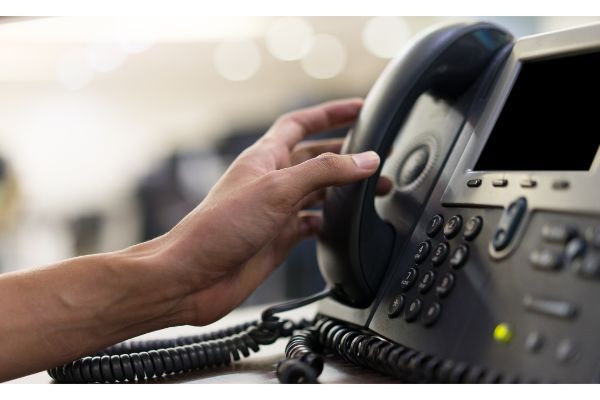A Quick Guide To Running A Law Practice: The Telephone – Friend Or Foe?

Like many jobs, the life of an attorney is time-consuming. There are seemingly never enough hours in the day to complete every task. One of the tasks that attorneys seem to succeed at doing poorly, according to many clients, is client communication. Despite the day never seemingly having enough hours, there are a few key ways that attorneys may improve their communication skills with clients.
Aside from a personal meeting, no form of communication equals the ability of attorney and client to talk on the telephone. While emails are a good way to exchange basic information like the time of a hearing or a medical provider’s invoice, it will not satisfy a client like a phone call. Of course, some clients may prefer emails instead of phone calls, even for the communication of important information. However, most clients still prefer a live conversation rather than the slow back-and-forth of emails because of the opportunity to actively discuss their matter and ask questions.
However, attorneys inconsistently or even failing to return phone calls to explain the current status of a legal matter is a primary complaint of many clients. Although attorneys are often busier than they want to be, this is no excuse for having a limited ability to communicate with clients. It is understandable that any person would be nervous and concerned, perhaps even more than necessary, when asserting their legal rights or defending a lawsuit.
Clients depend on regular attorney-client communication to maintain focus, primarily so they may prepare for their case’s worst potential outcome. If attorneys make clients feel neglected or uninformed at any point during a legal matter’s lifespan, clients tend to feel helpless, which conjures feelings of unpreparedness for a worst-case scenario. Therefore, it is crucial for attorneys, especially young attorneys, to be aware of client stress and anxiety whenever interacting with clients and not only on those occasions when it is necessary to do so.
It’s in this capacity as a nurturing guide, protector, and advocate that attorneys may rise above and stand apart from their competition. Although somewhat difficult based on any day’s circumstances, taking the time to always receive client phone calls (or return the call promptly within minutes) is an excellent practice that clients will notice immediately. In the alternative, setting aside enough time every day for client phone calls may be an easier way of ensuring regular contact with clients for attorneys who may find themselves unable to take or return calls consistently. One sign of client satisfaction is if clients are so well-informed that they never have any need or reason to actively call their attorney.
An established protocol to maintain regular communication channels with clients should be formulated and put in practice from day one. In 2020, there are more options available to attorneys to help them ensure that no client is ever out of the loop. Modern customer relationship management (CRM) technology can help track clients and create portals for regular, secure, and simplified communication.
From the point that the intake process begins, attorneys and clients must discuss the client’s communication expectations. Clients like having communication options and appreciate their attorney taking the time to determine what communication method is best for and preferred by them. More importantly, after establishing clients’ expectations, attorneys should verbalize their commitment to meeting these expectations.
In sum, the use of clear guidelines for client communication is an integral part of maintaining good client relationships. And the telephone is an efficient tool that attorneys should utilize rather than avoid. Telephone conversations even assist with ensuring attorney-client confidentiality. Using the phone regularly and efficiently is one of the keys to client satisfaction.
Attorneys should ask “if I was the client, would I be satisfied with the consistency of communication sufficiently to feel connected to my legal matter?
If you are interested in becoming an exceptional legal advocate, consider the benefits of the California Desert Trial Academy. As a member of CDTA’s growing family, you’ll receive access to our student and alumni attorneys, who freely and openly share their legal experiences, career advice, and academic tips. Call us today at (760) 342-0900 or find out more online here.


